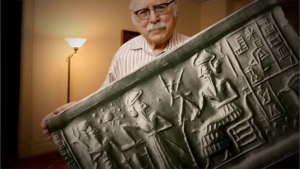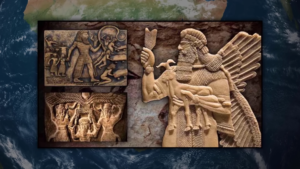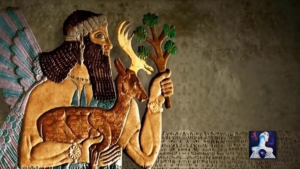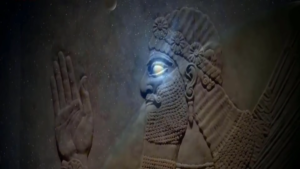*They Don’t Want You To Know This*
In the shadows of ancient civilizations lies a narrative so captivating, it challenges the very fabric of our understanding of human history. Meet Zechariah Sitchin, born on July 11, 1920, in Baku, Russia, a man whose life’s journey took him from Palestine to London and finally to New York. His fascination with ancient Near Eastern languages led him to explore the mysteries of archaeological sites worldwide, with a particular focus on the enigmatic Sumerians.

The Sumerian civilization, emerging some six thousand years ago in present-day Iraq and Iran, left behind an intricate record etched on millions of cuneiform tablets. Sitchin, delving into these texts, unearthed a mind-bending story that challenges conventional beliefs about our origins. And we’d like to thank ExpressVPN for sponsoring this eye-opening exploration.
According to Sitchin, the gods of Sumer, the Anunnaki, were not mythical beings but visitors from the planet Nibiru, arriving 445,000 years ago with a specific mission: to mine gold. This seemingly fantastical tale led Sitchin to interpret ancient texts not as allegory but as a historical record.

The Anunnaki, led by half-brothers Enki and Enlil, first landed in the Persian Gulf, establishing a flourishing colony by draining marshes and creating an irrigation system between the Tigris and Euphrates rivers. When mining gold in the Gulf proved challenging, they relocated the operation to South Africa.
The story takes a startling turn when the lower-class Anunnaki, tasked with mining, rebelled. In a radical move, Enki and Enlil turned to genetic manipulation, creating a species of slave workers called the Adamu by combining Anunnaki genes with Homo Erectus. The first man, Adamu, marked a leap in evolution as Homo Erectus became Homo Sapiens overnight.

But why go through such lengths to create a workforce? Sitchin suggests the Anunnaki’s insatiable need for gold wasn’t just for wealth. They ground it into fine powder and suspended it in their atmosphere, using it as a shield against cosmic rays on their dying planet, Nibiru.
The tale finds eerie parallels in various mythologies, including the biblical story of Adam and Eve. Adamu’s genetic barriers preventing full intellectual potential mirror Adam and Eve’s restrictions in the Garden of Eden.
Scientific discoveries add a new layer of intrigue. The Human Genome Project found 97% of human DNA seemingly without a function, challenging evolutionary explanations. Could this ‘junk DNA’ be a remnant of the Anunnaki’s genetic manipulation?
Furthermore, a 2010 study aligns the mitochondrial Eve, the common female ancestor, with the Anunnaki’s timeline of creating human women.

But why create humans as slave workers? Gold, vital in modern electronics and aerospace technology, plays a pivotal role. The Anunnaki may have lied about repairing their atmosphere, using gold for advanced technology, space travel, and possibly fueling their intergalactic empire.
The tale concludes with a cataclysmic flood wiping out much of the human population. The Anunnaki then founded the Sumerian civilization, leaving Earth but overseeing humanity from afar.
As we ponder the significance of gold throughout human history, we’re left with haunting questions: Are we truly free, or are we unwittingly serving the legacy of the Anunnaki? The obsession with gold, deeply embedded in our history, might be a testament to an ancient agenda that continues to shape our destiny.

In the quest for truth, we’re left to wonder: Are we the masters of our fate, or mere pawns in a cosmic game played by beings from beyond the stars? The answers may be buried in the ancient texts and strands of ‘junk DNA,’ waiting to be unraveled by those brave enough to seek the forbidden truths of our past.




